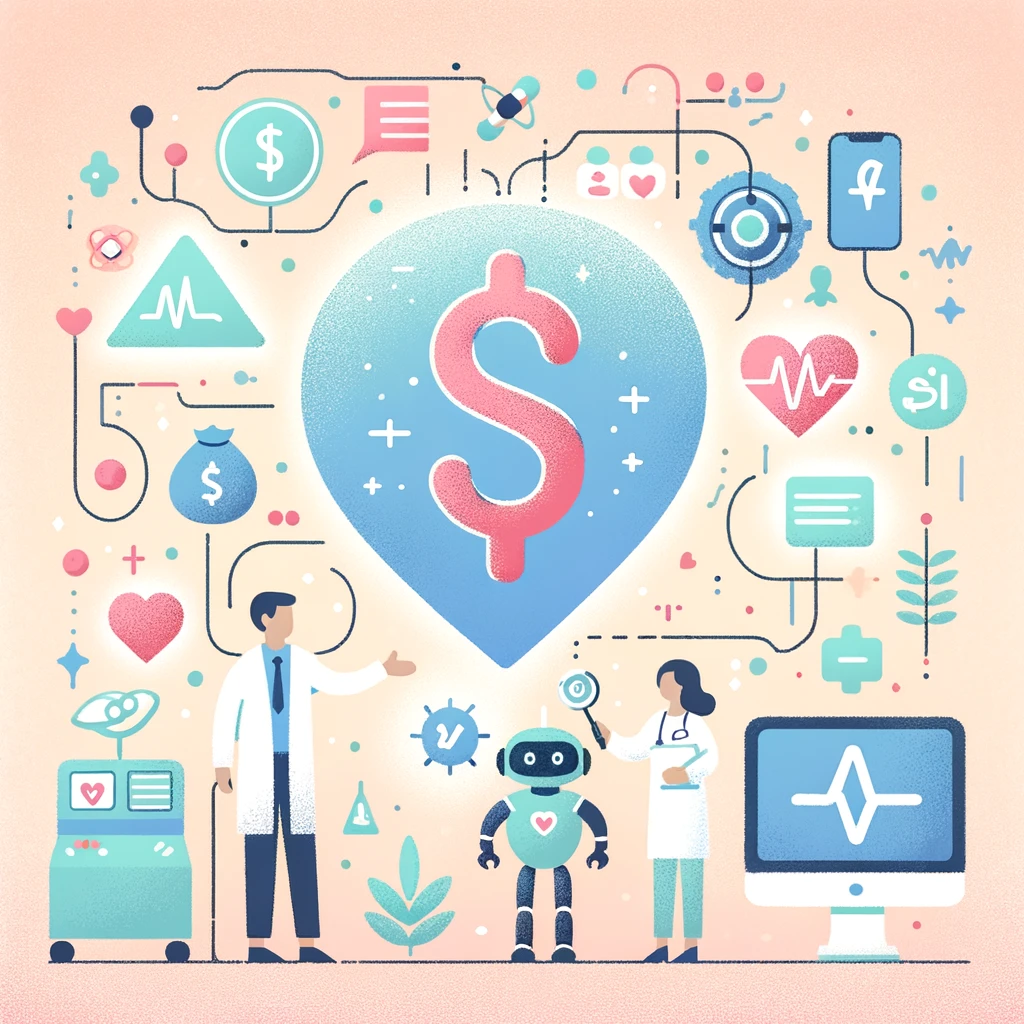The Future of AI in Healthcare: Key Considerations for 2024 and Beyond
Summary

Artificial intelligence (AI) is rapidly becoming a revolutionary force in the healthcare industry, with the potential to reshape various aspects of patient care and health system management.
The future of AI in healthcare promises to provide more accurate diagnoses, personalized treatment plans, and improved health outcomes through the integration of complex algorithms and data analysis.
From streamlining administrative workflows to advancing the capabilities of precision medicine, AI's applications in this field are wide-ranging and continually developing.
In this article, we will explore the expansive role AI is expected to play in healthcare, examining its impact on both patients and providers as we approach the next decade.

The Future of AI in Healthcare: TL;DR
Artificial intelligence (AI) in healthcare is expected to revolutionize patient care and health management. As technology advances, AI's application in the medical field continues to expand, promising notable improvements in various areas:
- Clinical Outcomes: AI-driven tools are poised to enhance diagnostic accuracy, tailor treatment plans, and predict patient outcomes, thereby improving both individual and population health.
- Cost Reduction: By automating tasks and optimizing resources, AI aims to lower healthcare expenses and increase efficiency.
- Error Reduction: AI's ability to analyze large volumes of data with high precision can help minimize errors due to human oversight.
Can AI Revolutionize the Future of Healthcare?
Artificial intelligence (AI) is poised to be a transformative force in healthcare. It offers the potential to analyze vast datasets, understand patterns, and provide actionable insights that can inform both diagnosis and treatment.
While the future of AI in healthcare holds many possibilities, it is evolving to address the quintessential aim of enhancing patient outcomes while also optimizing costs.
AI trends in healthcare suggest a trajectory towards more personalized medicine. Precision diagnostics, for instance, allow for tailored treatment plans based on individual genetic profiles.
This level of personalization extends to therapeutics, where AI is aiding in the creation of highly specific medications for better efficacy and minimal side effects.
Healthcare management stands to benefit significantly from AI. Administrative tasks, which are time-consuming for healthcare professionals, could be streamlined or automated, allowing for more direct patient care.
Additionally, AI systems can enhance decision-making processes by providing clinical decision support at the point of care, balancing vast data points to advocate for the best-patient centered strategies.
The future of AI in medicine also underscores the importance of data security and ethical considerations. As AI continues to integrate into healthcare systems, the adherence to strict privacy regulations and the ethical use of patient data remains paramount.
How AI Will Change Healthcare: 5 Trends for the Future
1. Personalized Treatment Protocols
The integration of AI in healthcare is steering towards more tailored treatment plans. By analyzing individual genetic markers and lifestyle data, AI can facilitate the creation of personalized health protocols, ultimately enhancing patient outcomes.
2. Virtual Health Assistants
AI-powered virtual health assistants are poised to become an integral part of patient care. They provide real-time medical advice and 24/7 support, leading to a more efficient and accessible healthcare system.
3. Improved Patient and Clinical Team Outcomes
AI applications in healthcare promise improved results both for patients and healthcare providers. Through improved diagnostics, predictive analytics, and clinical decision support, patient outcomes and team efficiencies are expected to see significant gains.
4. Cost Reduction
By streamlining processes and improving diagnostic accuracy, AI has the potential to reduce healthcare costs. From administrative tasks to complex surgeries, AI's ability to automate and optimize is likely to cut expenses across the board.
5. Enhanced Accessibility
The workforce transformation, driven by AI, means healthcare services could become more ubiquitous, providing better and more widespread care. Automation could allow healthcare practitioners to focus on direct patient care, thus enriching the patient experience and extending reach.
Shaping the Future of Healthcare Through AI in Your Organization
Healthcare organizations are poised to transform the way care is delivered through the strategic implementation of artificial intelligence (AI).
The integration of AI promises to improve patient care and reduce healthcare costs, while also mitigating the risk of human error.
Key Areas of AI Implementation:
- Diagnostic Efficiency: AI can analyze medical imaging faster and often with greater accuracy than human counterparts.
- Personalized Medicine: Using genetic profiles, AI enables highly personalized treatment plans.
- Operational Automation: Administrative tasks such as claims processing can be streamlined using AI, saving time and resources.
- 24/7 Virtual Assistance: Chatbots and virtual assistants can provide real-time medical advice and support patient engagement.
Healthcare leaders should be cognizant of the implications of AI deployment.
Their responsibilities include ensuring ethical AI use, maintaining patient trust, and navigating new regulations.
By carefully planning their strategy, they can harness AI's potential to revolutionize healthcare delivery.
Through these considerations, healthcare organizations can shape a future where AI not only complements but elevates the standard of care.
Related Articles












